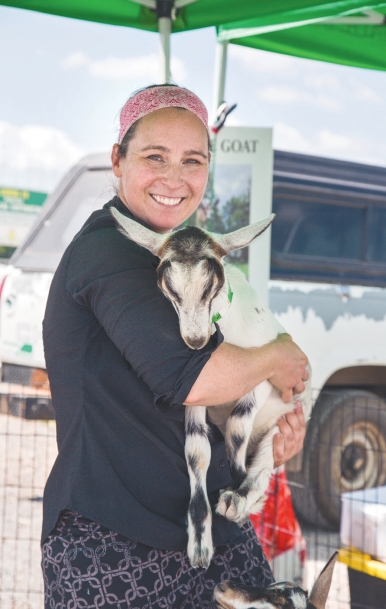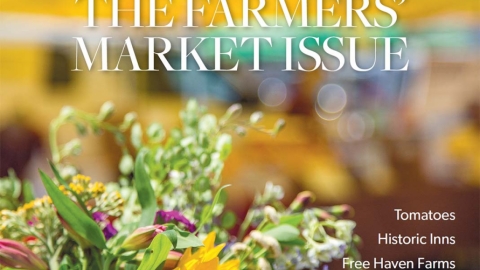The Secret Life of a Goat Farmer
Some mornings, you’ll find me leaving the house in a suit, rocking high heels and makeup, dressed to impress. No, I’m not heading back to the goat barn, I’m ready to present to my CEO. This is my dual life: a R&D scientist by day and a goat farmer all the rest of the time.
In my off-farm job, I manage a team of scientists to create innovative food ingredients. You might find my team’s creations in your favorite snacks, cereals, and ready meals. My degrees in biochemistry and human nutrition landed me in this role.
On the farm is a different story. My responsibilities range from milking at 6:30am and 6:30pm, April through December, to all aspects of herd health management, to maintaining our licenses, to keeping our accounting in order, to marketing and selling our products. My husband is the primary milk processor and cheesemaker. Starting in spring, both of us are on-call as a goat midwife to aid our lady goats if they have trouble delivering their kids. We move into milk processing season two months later as the baby goats are weaned. Tasks change as the year progresses.
My husband and I opened Gorgeous Goat Creamery in July 2020. Our farmstead creamery was born out of a desire to bring fresh food to the local community. We had been making cheese in our kitchen for two years, much to the delight of our friends, who eagerly enjoyed it at picnics and events, and we wanted to begin selling our goat cheese and goat milk products to a larger audience.
We didn’t set off to be goat farmers; we just wanted to manage the invasive plants on our property in a sustainable manner. Goats have an appetite for a lot of invasive and nuisance plants in New Jersey forests, including poison ivy. When we purchased our first four goats a few years ago, their primary purpose was to eat those invasive plants in the forest surrounding our property.
Our herd has grown to include six milking does (female goats), five doelings (young female goats), 15 kid goats born this year and 13 male goats that munch on the multiflora rose, barberry, and stilt grass during the spring, summer, and fall. We process all of our milk on the farm to craft the freshest chevre, 100% goat-milk feta, and bottled goat milk.
Like many farmers, our family relies on my off-farm job to make ends meet financially and provide health insurance. This type of parallel universe is not uncommon in agriculture. Did you know that 80—90% of farm families rely on off-farm income? It’s pretty crazy when you consider that farming is often a 24/7/365 job.
My passion for local, sustainable, and regenerative food motivates me to get up early every morning and work all weekend long on our farm. Fortunately for me, the goats are great coworkers and make me smile. We look forward to expanding our selection to include goat milk yogurt and more bottled goat milk (in glass bottles!) in 2021.
Gorgeous Goat Creamery
71 Featherbed Lane, Stockton
908.274.1295
gorgeousgoat.com
Please check website or call ahead for hours
EDITOR’S NOTE: Look for Gorgeous Goat Creamery at the Hunterdon Land Trust Farmers’ Market at Dvoor Fam in Flemington (Sundays 9am—1pm), the Duke Farms Farmers’ Market in Hillsborough (Sundays 10am—2pm), and the Juniper Hill Farmers’ Market in Annandale (Thursdays, 4—7pm). The farm is now also open for tours on weekends.







